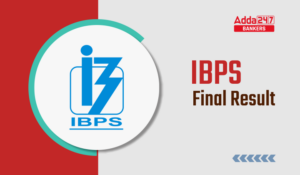In the recent news surrounding the spread of the COVID-19 pandemic, it is suggested that the drug Hydroxychloroquine, which has been used since the 1940s to prevent as well as treat malaria, rheumatoid arthritis and lupus, can help control an overactive immune system.
Start your preparation for SBI PO 2020: Click Here for Study Material
WHAT IS HYDROXYCHLOROQUINE?
Known by its brand name Plaquenil, Hydroxychloroquine is a drug used to treat malaria. It is a much less toxic version of Chloroquine, which is another drug used for malaria treatment, in addition to being an ingredient in tonic water. Both the drugs have been derived from quinine, which chemists in France isolated from the bark of the cinchona tree in the 1820s.
Coronavirus In India: How COVID-19 Spread, Symptoms, Treatment, Case Fatality Rate, SARS-CoV-2
In the United States of America, the drug is approved by the FDA as malaria and anti-inflammation treatment. Additionally, it is available as an off-the-shelf drug in the US and has various low-cost generic versions there. However, as of now, the FDA has not conducted any clinical trials to fully ascertain whether Hydroxychloroquine could be an effective treatment for COVID-19.
IS HYDROXYCHLOROQUINE SAFE THEN?
Just like every other drug, Hydroxychloroquine also has side effects. Some of these include cardiac arrhythmias, muscle weakness, drop in blood sugar, insomnia, hallucinations, blurred visions, nausea, cramps, headaches and diarrhoea. There has also been some evidence of retinal damage from hydroxychloroquine in a few cases.
HOW COULD HYDROXYCHLOROQUINE BE HELPFUL IN TREATING COVID-19?
Doctors and medical practitioners in many countries, including the United States, China, France as well as South Korea have reportedly had success in treating patients infected with COVID-19 with Hydroxychloroquine. They have also sometimes paired this drug with the antibiotic called Azithromycin.
Studies conducted on the drug suggest that it could potentially prevent SARS=CoV-2, which is the virus that causes COVOD-19, from entering cells in a petri dish. However, even though it shows a plausible mechanism for the drug, the effects of the drug on humans could be different from its effects on cells in a dish.
In regards to human trials of Hydroxychloroquine, the results have been mixed. A small study by researchers in France showed that the drug could clear the infection in a few days. However, their study sample included only 36 patients. Moreover, since the trial was not a random one, the results could be skewed.
On the other hand, a study in China showed that the drug was as good as the standard medical treatments without the drug. This study was also small, with 30 patients. However, this study was a random one.
Yet another study in France, with 11 patients being tested, showed that the drug was quite ineffective. In this case, one patient died, two were transferred to an ICU and yet another experienced a dangerous heart problem, thereby stopping the Hydroxychloroquine treatment early.
In Sweden, some hospitals stopped offering the drug after patients reported having blurred vision and seizures.
It is important to know that Hydroxychloroquine has been used to treat the symptoms of lupus, which is an autoimmune disease. According to researchers at the John Hopkins University Lupus Centre, it has also been used to improve symptoms such as muscle and joint pain, skin rashes, inflammation of the lung linings and heart, fever as well as fatigue.
Coronavirus In India: How COVID-19 Spread, Symptoms, Treatment, Case Fatality Rate, SARS-CoV-2
WHAT CAN BE DONE FOR NOW?
Some recent research done on the effects of Hydroxychloroquine as a potential COVID-19 treatment suggests that it is not better than the other conventional coronavirus treatments. This includes bed rest, oxygen inhalation and other antiviral drugs. While doctors, researchers and medical practitioners around the world are making efforts to find a vaccine for this pandemic, it is likely to take a lot of time.
Click Here to Register for Bank Exams 2020 Preparation Material
Practice with,



 IBPS Final Result 2025 Coming Out Tomorr...
IBPS Final Result 2025 Coming Out Tomorr...
 Simple Tips to Avoid Common Mistakes In ...
Simple Tips to Avoid Common Mistakes In ...
 Important Topics & Shortcuts for IDB...
Important Topics & Shortcuts for IDB...


